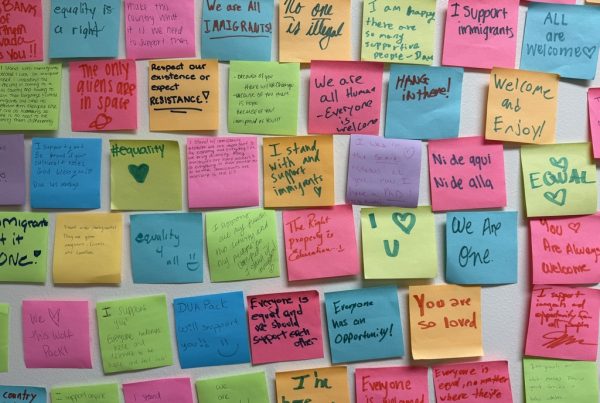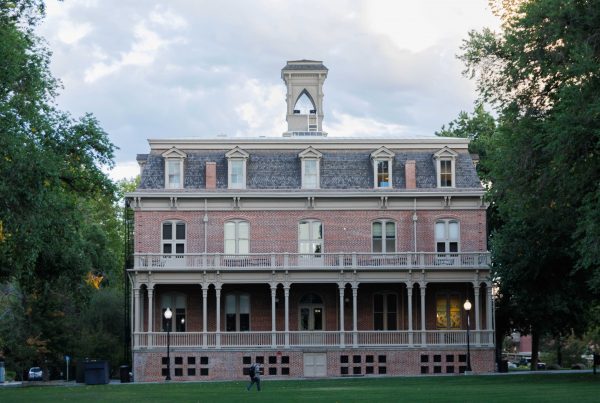After a massive budget shakeup at the University of Nevada, Reno and rising costs nationwide, students buying parking passes for this academic year had to pay 3% more for their parking pass than last year — a price hike between $2 and $23.
Because parking at the University is zoned, the most expensive passes will see the biggest rise. It’ll be most noticeable for students buying a “yellow” zoned permit to park their cars overnight near the resident halls.
Commuting students who rely on cheaper passes are seeing more modest price increases. That’s the case for students using “blue” zoned permits to park on north campus lots further from the majority of campus buildings.
Michelle Horton, the Director of Parking and Transportation at the University of Nevada, Reno, argues the increase is the most painless way for her operation to escape a tricky budget shortfall.
“I think when people hear permit fee increase, there’s a little panic,” Horton said. “But, once you look at permit designations and figure out where you fall in that, it’s pretty minor.”
Parking and Transportation Services at the University is self-funded. In addition to operations students may be familiar with — like selling parking permits and issuing citations — Parking and Transportation is also responsible for other things that Horton says have gotten more expensive. Parking and Transportation Services funds the University’s own bus loop, Pack Transit, parking lot and garage maintenance and the cost of building parking structures like the Brian J. Whalen, West Stadium and Gateway Parking Complexes, Horton explained.
“Gas has gone up, maintenance on the buses has gone up, fixing potholes — all of that has increased,” Horton said. “So the permit fee increase will put the expenses in line with revenue.”
Parking and Transportation also has to shoulder the responsibility for giving its staff cost of living adjustments, increasing the overall cost of salaries.
For some students who rely on parking passes to commute to school, however, the increase is a hassle when they already feel they don’t have a choice. Grant O’Dowd, who’s currently studying music at the University, has some reservations.
“I don’t blame them, like the economy is rough, but I wish there were a better way. I think it’s expensive as is,” O’Dowd said.
O’Dowd added that his experience with parking at the university has been confusing and contentious. He often arrives earlier than classes require because the decent spots go so quickly. O’Dowd said that he intends to go for a cheaper parking pass next year.
Max Neidhold, a current art student who uses a “Silver” zoned permit, went further, arguing that parking at the University isn’t even worth what he pays already.
At the West Stadium complex, Neidhold said, “That parking is also used for events, so I’m paying around $400 for other people to get parking for free, and then along with that, like a sixth of that parking was off-limits once to twice a week in the fall semester, it felt like.”
Neidhold also argued that the parking garages aren’t adequately maintained, complaining of routinely broken elevators and neglected trash. He, like O’Dowd, is thinking of buying a cheaper permit next year — or even scouting sparse parking off-campus and foregoing the pass altogether.
“It seems like the students are paying for a bad deal when they have to pay for parking,” Neidhold said. “The fact that the price of the parking pass is getting raised even though I don’t see any quality improvements is unacceptable.”
Parking passes are Parking and Transportation Services’ largest source of revenue by far, according to a budget document requested by The Nevada Sagebrush. Last year, 2023-2024, parking passes brought in $3,826,944, as compared to the $486,735 brought in by citations, $590,317 brought in by parking meters or PayByPhone and $206,979 brought in by permit dispensers, according to the document.
“While you see we make a lot in permit sales, it all goes back into the parking system,” Horton said. “All the potholes that we fix, all the signs that we put up, the EV charging stations we provide. There’s a lot of things we do with this revenue to help students succeed.”
For incoming resident students who are concerned about pricing, Horton suggested exploring other transportation options.
“Perhaps try a semester without a car, be a part of campus life and see if you need a vehicle,” Horton said. “If you do, give us a call, and we’ll get you a permit, but maybe that first semester would be a good opportunity to see if you need a permit. There are freshmen who bring their cars and they just sit over there.”
Horton emphasized the Bird scooters, Pack Transit and the RTC free rides program, which allows students to use Reno’s bus system for free, as alternatives.
“I’d rather have a small increase now than a huge one where no one can afford it later,” Horton said. “Parking gets a bad rap, but we do a lot of good things on campus, and I totally support student success. Parking should be the last thing on your mind: you’ve got enough to worry about.”
Peregrine Hart can be reached via email at peregineh@unr.edu or via Instagram @pintofperegrine.







